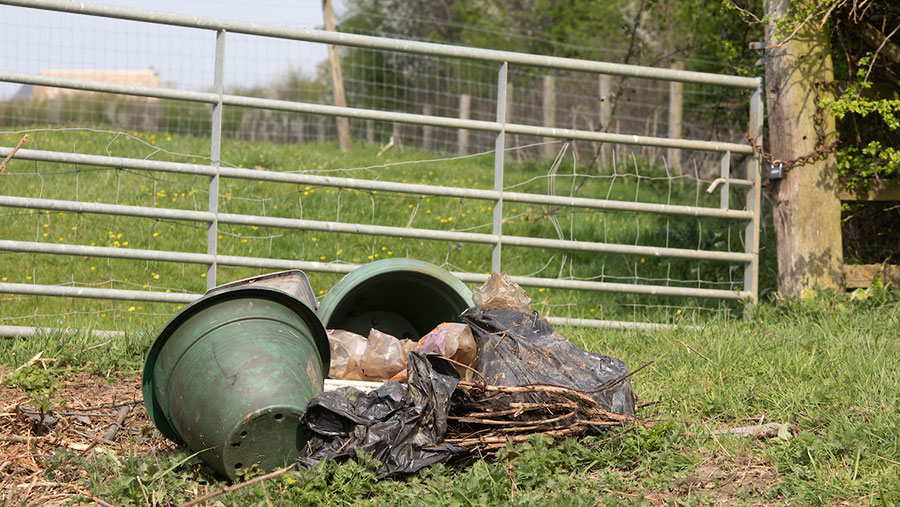Second Covid lockdown raises fears of fly-tipping surge
 © Tim Scrivener
© Tim Scrivener There are fears that rural areas could see another spike in fly-tipping as England enters a second lockdown due to the coronavirus pandemic.
The March lockdown forced the closure of household waste recycling centres (HWRCs), and the Countryside Alliance blamed this for a 300% surge in rubbish being dumped illegally.
Defra guidance for local authorities says HWRCs should stay open “where possible”, but this has not been updated since the lockdown announcement from Boris Johnson on 31 October.
See also: What to do if you’re a victim of… fly-tipping
The NFU has advised farmers that where they have rubbish tipped on to their land, it is to be treated no different to any other contaminated waste.
Guidance on its website said: “Always exercise caution as some fly-tipped waste can be hazardous.
“Do not open bags or drums and be aware that piles of soil may be contaminated or hide dangerous material.”
The union encouraged farmers to always report fly-tipping and record as many details as possible, including pictures, to help authorities understand the scale of the issue.
Country Land and Business Association (CLA) president Mark Bridgeman urged farmers to ensure gates are locked and access routes are closed down where legally practical, and to report incidents to the police.
He said: “The Covid-19 crisis has brought many challenges to farmers and landowners, and a second lockdown poses further risks of another spike in rural crime.
“Incidents such as hare coursing, poaching, machinery thefts and fly-tipping continue to blight those who live and work in the countryside.
“One CLA member, who is regularly subjected to fly-tipping, is having to pay £50,000/year for rubbish to be cleared. This behaviour is unacceptable and must be stopped.”
Marts remain open
Meanwhile, the Livestock Auctioneers’ Association (LAA) has said its markets will remain open, and has set out updated guidance in response to the latest lockdown.
Attendance will be restricted to those conducting business, and only one representative per business will be allowed on site.
A drop-and-go policy should be used where possible.
Only livestock sales will be held. Machinery, poultry, fur and feather and furniture sales will be postponed or cancelled.
All on-farm sales of machinery and non-livestock goods will be postponed or cancelled.
LAA executive secretary Chris Dodds said: “Livestock auction markets have been acknowledged as essential and critical businesses in the food supply chain.
“However, we have a responsibility to conduct our sales in a way that minimises the risk to both clients and staff of contracting Covid-19.”
